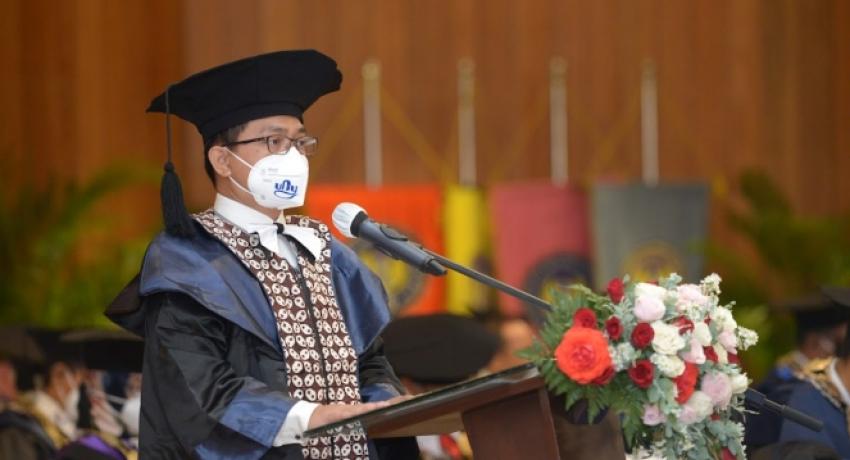Civic education has a strategic role in forming good, intelligent, democratic, and responsible citizens. Good citizens have characters following the values of Pancasila as the philosophy of the Indonesian. The noble values contained in Pancasila need to be instilled from an early age so that later when they grow up, they become good citizens by upholding the noble values contained in Pancasila. The strategic role of civic education in forming good, intelligent, democratic, and responsible citizens needs to be developed in line with the rapid changes in the 21st-century era. So said Prof. Dr. Mukhamad Murdiono, M.Pd., in his inauguration as a professor in Civic Education Learning Strategies at the Faculty of Social Sciences, Universitas Negeri Yogyakarta, recently.
In his speech entitled 'Transformative Learning Strategies for Strengthening Citizenship Literacy', Mukhamad Murdiono explained that citizens must-have 21st-century skills to compete at regional and global levels. These skills are competence, basic literacy, and character. Critical basic literacy is reading-writing, numeracy, scientific, digital, financial, cultural, and civic literacy. "To be able to compete in the 21st-century era, citizens of the world must have critical thinking skills, creativity, communication, and collaboration," he said.
Civic education has a vital role in developing citizen understanding to face the problems that arise in the 21st-century era. Citizenship education is not limited to studying the rights and obligations of citizens but is broader and more profound, including preparing citizens to become global citizens. Civic education equips students in schools with knowledge of global issues, cultures, institutions, and international systems and is indicative of a minimalist approach that can take place exclusively in the classroom. According to him, citizenship education reflects a maximum approach that ensures students are ready to take on the role of mature and responsible global citizens.
"To implement a transformative learning strategy, it takes a teacher who acts as an educational designer because they will be dealing with students who grow up in the 21st-century era with special and unique characteristics," he concluded.





